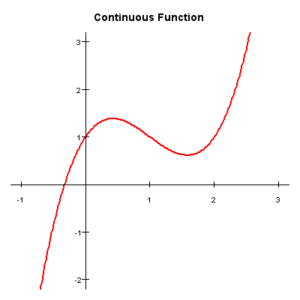 While litigants are understandably enthusiastic about the automatic right of appeal of the denial of a TCPA motion, the courts of appeal are understandably reluctant to expand that right beyond what the statute allows. In Pope-Nixon v. Howard, Ms. Pope-Nixon sued Mr. Howard and Mr. Green. Howard won his TCPA motion to dismiss and and an appeal ensued. The court of appeals found that it lacked jurisdiction, noting that “the trial court’s order left pending the damages issue and Green had not moved for dismissal . . . .” No. 05-18-01215-CV (Feb. 25, 2019) (mem. op.)
While litigants are understandably enthusiastic about the automatic right of appeal of the denial of a TCPA motion, the courts of appeal are understandably reluctant to expand that right beyond what the statute allows. In Pope-Nixon v. Howard, Ms. Pope-Nixon sued Mr. Howard and Mr. Green. Howard won his TCPA motion to dismiss and and an appeal ensued. The court of appeals found that it lacked jurisdiction, noting that “the trial court’s order left pending the damages issue and Green had not moved for dismissal . . . .” No. 05-18-01215-CV (Feb. 25, 2019) (mem. op.)
Monthly Archives: February 2019
 The Texas Supreme Court’s opinion in Mercedez-Benz v. Carduco has sparked discussion about the interplay between contract terms and oral representations. An important component of that discussion is that Court’s reminder that: “Another issue for Carduco in this case is the testimony of Renato Cardenas, Carduco’s sole owner
The Texas Supreme Court’s opinion in Mercedez-Benz v. Carduco has sparked discussion about the interplay between contract terms and oral representations. An important component of that discussion is that Court’s reminder that: “Another issue for Carduco in this case is the testimony of Renato Cardenas, Carduco’s sole owner  and decision maker, who testified that none of the defendants actually made any oral representation to him about Carduco’s ability to move the dealership to the McAllen area as the exclusive Mercedes-Benz dealership there.” The lack of such evidence mooted a dispute over the situations where partial disclosure can create an obligation to make corrective representations. No. 16-0644 (Feb. 22, 2019).
and decision maker, who testified that none of the defendants actually made any oral representation to him about Carduco’s ability to move the dealership to the McAllen area as the exclusive Mercedes-Benz dealership there.” The lack of such evidence mooted a dispute over the situations where partial disclosure can create an obligation to make corrective representations. No. 16-0644 (Feb. 22, 2019).
 A claim accrues when a wrongful act causes injury; if multiple wrongful acts occur, they may — or, may not — cause multiple injuries. Uncertainty on that point led to reversal of a summary judgment on limitations in Inman v. Loe: “In summary, to be entitled to final summary judgment, appellees had to prove conclusively that Inman’s contract and fiduciary breac h claims accrued more than four years before March 19, 2014. They relied on evidence showing that Inman was excluded from the company’s management and operation in June 2009. But Inman produced evidence that appellees committed other allegedly actionable conduct in August 2010, and nothing establishes that these acts did not result in a legal injury distinct from any injury Inman may have suffered in 2009.” No. 05-18-00130-CV (Feb. 20, 2019) (mem. op.)
A claim accrues when a wrongful act causes injury; if multiple wrongful acts occur, they may — or, may not — cause multiple injuries. Uncertainty on that point led to reversal of a summary judgment on limitations in Inman v. Loe: “In summary, to be entitled to final summary judgment, appellees had to prove conclusively that Inman’s contract and fiduciary breac h claims accrued more than four years before March 19, 2014. They relied on evidence showing that Inman was excluded from the company’s management and operation in June 2009. But Inman produced evidence that appellees committed other allegedly actionable conduct in August 2010, and nothing establishes that these acts did not result in a legal injury distinct from any injury Inman may have suffered in 2009.” No. 05-18-00130-CV (Feb. 20, 2019) (mem. op.)
 Among other important business-litigation issues recently addressed by the Texas Supreme Court in Bombadier Aerospace v. SPEP Aircraft Holdings, footnote 17 of the opinion provides a lengthy summary of potential Casteel issues in a jury question about damages – providing a not-so-subtle hint to be aware of potential appeal points in that highly technical area of Texas practice, as they are not reviewable absent objection. No.
Among other important business-litigation issues recently addressed by the Texas Supreme Court in Bombadier Aerospace v. SPEP Aircraft Holdings, footnote 17 of the opinion provides a lengthy summary of potential Casteel issues in a jury question about damages – providing a not-so-subtle hint to be aware of potential appeal points in that highly technical area of Texas practice, as they are not reviewable absent objection. No.  17-0578 (Tex. Nov. 1, 2018) (noting, after describing the applicable principles: “Here, no party raises the issue of charge error, and no party objected to the jury charge on that basis; in fact, the parties explicitly agreed to the form of question four with a single blank for actual damages. Therefore, although we note that question four arguably intermingles compensatory damages for diminution in value with damages for loss of warranty value, damages that Bombardier argues are unsupported, we express no opinion on the validity of question four under our broad-form damages question precedent.” (citations omitted)).
17-0578 (Tex. Nov. 1, 2018) (noting, after describing the applicable principles: “Here, no party raises the issue of charge error, and no party objected to the jury charge on that basis; in fact, the parties explicitly agreed to the form of question four with a single blank for actual damages. Therefore, although we note that question four arguably intermingles compensatory damages for diminution in value with damages for loss of warranty value, damages that Bombardier argues are unsupported, we express no opinion on the validity of question four under our broad-form damages question precedent.” (citations omitted)).
 The district court declined to reinstate a “DWOP’d” suit to quiet title and the Fifth Court reversed, finding that the plaintiff had acted reasonably under the applicable Craddock factor: “The actions were not “intentional” or a result of “conscious indifference.” Logically, heirship had to be decided before the district court could determine whether appellants had standing to bring the quiet title action and whether appellees had improperly clouded the title to the mineral interests at issue. Moreover, Texas courts have a strong policy supporting resolution of cases on their merits, and in promoting the predictability of property ownership and reliability of land titles, both of which strongly support the reinstatement of appellants’ claims.” Brooks-PHS Heirs LLC v. Bowerman, No. 05-18-00356-CV (Feb. 11, 2019) (mem. op.).
The district court declined to reinstate a “DWOP’d” suit to quiet title and the Fifth Court reversed, finding that the plaintiff had acted reasonably under the applicable Craddock factor: “The actions were not “intentional” or a result of “conscious indifference.” Logically, heirship had to be decided before the district court could determine whether appellants had standing to bring the quiet title action and whether appellees had improperly clouded the title to the mineral interests at issue. Moreover, Texas courts have a strong policy supporting resolution of cases on their merits, and in promoting the predictability of property ownership and reliability of land titles, both of which strongly support the reinstatement of appellants’ claims.” Brooks-PHS Heirs LLC v. Bowerman, No. 05-18-00356-CV (Feb. 11, 2019) (mem. op.).
 After a February 12 oral argument (scroll down for the link to the lengthy media file) where skepticism was expressed about applying the TCPA to trade-secret litigation, on February 14, the Fifth Court issued an order lifting the automatic stay created by statute during the appeal of the denial of a TCPA motion to dismiss. That order allows temporary-injunction and related proceedings to continue in the trial court. Dyer v. Medoc Health Services, LLC, No. 05-18-00472-CV.
After a February 12 oral argument (scroll down for the link to the lengthy media file) where skepticism was expressed about applying the TCPA to trade-secret litigation, on February 14, the Fifth Court issued an order lifting the automatic stay created by statute during the appeal of the denial of a TCPA motion to dismiss. That order allows temporary-injunction and related proceedings to continue in the trial court. Dyer v. Medoc Health Services, LLC, No. 05-18-00472-CV.
 A default judgment was set aside in a restricted appeal because the plaintiff’s pleading did not establish that the debt at issue was unliquidated when the proof was conclusory:
A default judgment was set aside in a restricted appeal because the plaintiff’s pleading did not establish that the debt at issue was unliquidated when the proof was conclusory:
RGD’s amended petition states, with respect to its sworn account claim, that a contract to purchase products was entered into by the parties, RGD thereafter provided goods to MG, and “all of the goods were not paid for.” RGD then cites to Exhibit “A” as a systematic record of “an account covering certain products sold by [RGD to MG].” Exhibit “A” contains a single page with several entries, none of which clearly identifies the items constituting the account. Nor does Exhibit “A” indicate that the amounts listed thereon are unpaid. The accompanying “Sworn Account Affidavit,” signed by RGD’s credit manager, merely proves up Exhibit “A” as a business record and, without more, avers in conclusory fashion that GM owes RGD “$17,131.23 plus interest.” Neither a contract nor invoices are attached.
MG Int’l Menswear v. Robert Graham Designs, No. 05-18-00517-CV (Feb. 15, 2019) (mem. op.).
 In Gibson v. Stonebriar Mall LLC, a premises-liability claim, the plaintiff sought a continuance; her motion “asserted she needed more time to obtain the depositions of (1) a Nordstrom employee who allegedly received information regarding a patron falling in the same area prior to her fall; (2) the Mydatt security guard or other employee who treated the sidewalk; and (3) a Stonebriar corporate representative,” as well as “identification of mall management assigned to respond to the scene,” and “information that Mydatt’s contract with Stonebriar may have been conveyed to another corporation prior to the incident.” The supporting declaration from her attorney did not “explain[] that Gibson used diligence in obtaining this discovery or was denied the discovery,” and also “d[id not explain the materiality, relevance, and purpose of the discovery sought other than stating, ‘These are material fact witnesses who have yet to be identified and deposed.'” For this and other reasons, there was no abuse of discretion in denying the continuance. No. 05-17-01242-CV (Feb. 8, 2019) (mem. op.)
In Gibson v. Stonebriar Mall LLC, a premises-liability claim, the plaintiff sought a continuance; her motion “asserted she needed more time to obtain the depositions of (1) a Nordstrom employee who allegedly received information regarding a patron falling in the same area prior to her fall; (2) the Mydatt security guard or other employee who treated the sidewalk; and (3) a Stonebriar corporate representative,” as well as “identification of mall management assigned to respond to the scene,” and “information that Mydatt’s contract with Stonebriar may have been conveyed to another corporation prior to the incident.” The supporting declaration from her attorney did not “explain[] that Gibson used diligence in obtaining this discovery or was denied the discovery,” and also “d[id not explain the materiality, relevance, and purpose of the discovery sought other than stating, ‘These are material fact witnesses who have yet to be identified and deposed.'” For this and other reasons, there was no abuse of discretion in denying the continuance. No. 05-17-01242-CV (Feb. 8, 2019) (mem. op.)
 The Fifth Court reversed the denial of Gattenby’s motion for new trial after a default judgment by a bank, finding that he raised a meritorious defense (the other two Craddock factors not being at issue: “[T]he record before us does not include evidence of an assignment between these two financial institutions. Rather, the Bank supported its claim for damages with a billing statement from a bank not party to this suit. To the extent the Bank contends ownership is established because the last four digits of theaccount listed in its original petition is identical to the last four digits of the account listed on Town North Bank’s billing statement attached to the Bank’s motion for default judgment, we reject its argument. Separate documents containing the same last four digits of an account is not evidence of an assignment” Gattenby v. TIB, No. 05-18-00168-CV (Feb. 6, 2019).
The Fifth Court reversed the denial of Gattenby’s motion for new trial after a default judgment by a bank, finding that he raised a meritorious defense (the other two Craddock factors not being at issue: “[T]he record before us does not include evidence of an assignment between these two financial institutions. Rather, the Bank supported its claim for damages with a billing statement from a bank not party to this suit. To the extent the Bank contends ownership is established because the last four digits of theaccount listed in its original petition is identical to the last four digits of the account listed on Town North Bank’s billing statement attached to the Bank’s motion for default judgment, we reject its argument. Separate documents containing the same last four digits of an account is not evidence of an assignment” Gattenby v. TIB, No. 05-18-00168-CV (Feb. 6, 2019).
 In the wake of In re: Houston Specialty Ins. Co., No. 17-1060 (Tex. 2019), the Fifth Court released a revised opinion in In re Texas Christian Univ, concluding that TCU’s filing of a Tarrant County declaratory judgment action established “dominant jurisdiction” as to a damages case filed against it the next day in Dallas County. Applying the Houston Specialty framework, the Court found that the two lawsuits were “inherently interrelated,” a test substantially derived from the compulsory counterclaim rule. The Court found no exception to the applicability of the “first-filed” rule in this situation, noting that complaints about the propriety of the Tarrant County action were for that court, and “as the case currently stands, the Tarrant County court concluded TCU’s claims are not frivolous by denying [Dallas Plaintiff’s] rule 91a motion to dismiss.” No. 05-18-00967-CV (Feb. 6, 2019).
In the wake of In re: Houston Specialty Ins. Co., No. 17-1060 (Tex. 2019), the Fifth Court released a revised opinion in In re Texas Christian Univ, concluding that TCU’s filing of a Tarrant County declaratory judgment action established “dominant jurisdiction” as to a damages case filed against it the next day in Dallas County. Applying the Houston Specialty framework, the Court found that the two lawsuits were “inherently interrelated,” a test substantially derived from the compulsory counterclaim rule. The Court found no exception to the applicability of the “first-filed” rule in this situation, noting that complaints about the propriety of the Tarrant County action were for that court, and “as the case currently stands, the Tarrant County court concluded TCU’s claims are not frivolous by denying [Dallas Plaintiff’s] rule 91a motion to dismiss.” No. 05-18-00967-CV (Feb. 6, 2019).
 Telfer v. Adams presented the question whether an objection to an affiant’s lack or personal knowledge was a defect in “form” or “substance,” and thus whether a trial court objection and ruling is necessary to preserve error about the affidavit’s consideration under Seim v. Allstate Texas Lloyds, 551 S.W.3d 161 (Tex. 2018). The Fifth Court sidestepped the question by concluding that the notary’s acknowledgement was sufficient to prove up the attached documents. The Court noted that its prior opinions were not consistent on the point, and cited an informative article by now-Magistrate Judge David Horan about the Fifth Circuit’s practices on this topic: “Because panels lack the authority to overrule one another, our first decision touching upon a question should control pending en banc reconsideration.” No. 05-17-01387-CV (Feb. 8, 2019) (mem. op.) (The mild incongruity of a rule about the resolution of uncertainty appearing in a memorandum opinion, which assumes that “the issues are settled,” Tex. R. App. 47.2, is a byproduct of 2003 rule amendments that reconfigured the types of appellate opinions in Texas.)
Telfer v. Adams presented the question whether an objection to an affiant’s lack or personal knowledge was a defect in “form” or “substance,” and thus whether a trial court objection and ruling is necessary to preserve error about the affidavit’s consideration under Seim v. Allstate Texas Lloyds, 551 S.W.3d 161 (Tex. 2018). The Fifth Court sidestepped the question by concluding that the notary’s acknowledgement was sufficient to prove up the attached documents. The Court noted that its prior opinions were not consistent on the point, and cited an informative article by now-Magistrate Judge David Horan about the Fifth Circuit’s practices on this topic: “Because panels lack the authority to overrule one another, our first decision touching upon a question should control pending en banc reconsideration.” No. 05-17-01387-CV (Feb. 8, 2019) (mem. op.) (The mild incongruity of a rule about the resolution of uncertainty appearing in a memorandum opinion, which assumes that “the issues are settled,” Tex. R. App. 47.2, is a byproduct of 2003 rule amendments that reconfigured the types of appellate opinions in Texas.)
 Hearsay must be “offer[ed] in evidence to prove the truth of the matter asserted in the statement.” Tex. R. Evid. 801(d)(2). Conversely, if an “[a]greement was offered to show that an agreement had been made and what its terms were,” then “[]he [a]greement was not hearsay.” In re: M.S. , 115 S.W.3d 534, 543 (Tex. 2003). The recitals in a substitute trustee’s deed present a close choice between these two principles, which the Fifth Court has resolved in favor of admissibility: “The recitals in the trustee’s deed set forth the facts on which the foreclosure sale was based and are germane to the deed’s purpose,” and are thus not excluded by the hearsay rule. Mack v. Tuesday Real Estate LLC, No. 05-18-00105-CV (Feb. 5, 2019) (mem. op.)
Hearsay must be “offer[ed] in evidence to prove the truth of the matter asserted in the statement.” Tex. R. Evid. 801(d)(2). Conversely, if an “[a]greement was offered to show that an agreement had been made and what its terms were,” then “[]he [a]greement was not hearsay.” In re: M.S. , 115 S.W.3d 534, 543 (Tex. 2003). The recitals in a substitute trustee’s deed present a close choice between these two principles, which the Fifth Court has resolved in favor of admissibility: “The recitals in the trustee’s deed set forth the facts on which the foreclosure sale was based and are germane to the deed’s purpose,” and are thus not excluded by the hearsay rule. Mack v. Tuesday Real Estate LLC, No. 05-18-00105-CV (Feb. 5, 2019) (mem. op.)
.
 The Fifth Court affirmed summary judgment for the plaintiff, in a suit to recover an unpaid credit card balance, based on a record with two exhibits
The Fifth Court affirmed summary judgment for the plaintiff, in a suit to recover an unpaid credit card balance, based on a record with two exhibits- “The first exhibit attached to the Bank’s motion for summary judgment consisted of three types of documents: (1) twelve consecutive monthly statements for the period of June 11, 2015, to June 10, 2016, with a final balance of $17,445.84, each listing Alqawariq as the account holder, showing he made charges and payments, and demonstrating the Bank assessed transaction fees and charged interest; (2) Alqawariq’s credit card agreement; and (3) an applicant details record concerning [personal identifying] information about Alqariq . . . .”
- “The second exhibit contained a business records affidavit attaching the final account statement for the period of May 11, 2016, to June 10, 2016, which showed a balance of $17,445.84. In the business records affidavit, the custodian of records stated that: ‘[Alqawariq] opened an account with [the Bank], or a predecessor in interest, for the purpose of obtaining an extension of credit [] and did thereafter use or authorize the use of the [a]ccount for the acquisition of goods, services, or cash advances in accordance with the customer agreement [] governing use of the [a]ccount. Further, [Alqawariq] has failed to make periodic payments as required by the [a]greement.”
Alqaqwariq v. Bank of America, No. 05-18-00392-CV (Feb. 4, 2019) (mem. op.)
A stealthy Casteel issue was addressed by the Texas Supreme Court in Bombadier Aerospace v. SPEP Aircraft Holdings. The issue arose when the phrase “Plaintiffs” was defined to include several entities – only two of whom actually had a right to recovery damages. The Court found no harm, largely because the parties had reached a stipulation that mitigated potential confusion from the question. The issue is nevertheless worth noting as an aspect of Casteel that has not yet received analysis by the supreme court.
 An issue in the Texas Supreme Court’s analysis of Bombadier Aerospace v. SPEP Aircraft Holdings, No. 17-0578 (Feb. 1, 2019), was whether an appraisal expert’s testimony created a legally sufficient foundation for the damages awarded. The Court found that it was: “Fogg did not attach specific dollar figures or percentage deductions to each of these issues to show exactly how he arrived at his 10% deduction. Nor did he examine a specific comparable aircraft; rather he conducted a general market examination for Challenger 300s. Indulging every reasonable inference in support of the verdict, we conclude that although Fogg’s reasoning for his valuation could have been more substantive, he sufficiently linked his conclusions about the Challenger 300’s value to available facts about its issues and the marketplace.”
An issue in the Texas Supreme Court’s analysis of Bombadier Aerospace v. SPEP Aircraft Holdings, No. 17-0578 (Feb. 1, 2019), was whether an appraisal expert’s testimony created a legally sufficient foundation for the damages awarded. The Court found that it was: “Fogg did not attach specific dollar figures or percentage deductions to each of these issues to show exactly how he arrived at his 10% deduction. Nor did he examine a specific comparable aircraft; rather he conducted a general market examination for Challenger 300s. Indulging every reasonable inference in support of the verdict, we conclude that although Fogg’s reasoning for his valuation could have been more substantive, he sufficiently linked his conclusions about the Challenger 300’s value to available facts about its issues and the marketplace.”
Notably, the expert explained credibly why certain valuation techniques were not used: “[F]inding comparable values in the marketplace tends to be difficult for aircraft, and Fogg explained that the depreciation in value of an aircraft is a ‘variable number.’ And finding comparable values for aircraft with certain damage or issues may be impossible. Fogg made it clear that this particular Challenger 300 had unique issues and that the lack of documentation of all of these issues made the value uncertain . . . We note that Fogg’s experience with aircraft alone may be a sufficient basis for his valuation, and coupled with the engines’ issues, we conclude that he provided sufficient bases for his valuation opinion.”
 In an important opinion for several basic commercial-law concepts, the Fifth Court’s opinion was affirmed in part and reversed in part by the Texas Supreme Court in Bombadier Aerospace v. SPEP Aircraft Holdings. More to follow, but the supreme court’s review of Dallas precedent on these topics is of substantial interest for area litigators. In particular, the supreme court enforced a waiver of exemplary damages: “We must respect and enforce terms of a contract that parties have freely and voluntarily entered…. Bombardier and the purchasing parties—sophisticated entities represented by attorneys in an arms-length transaction—bargained for the limitation-of-liability clauses to bar punitive damages.”
In an important opinion for several basic commercial-law concepts, the Fifth Court’s opinion was affirmed in part and reversed in part by the Texas Supreme Court in Bombadier Aerospace v. SPEP Aircraft Holdings. More to follow, but the supreme court’s review of Dallas precedent on these topics is of substantial interest for area litigators. In particular, the supreme court enforced a waiver of exemplary damages: “We must respect and enforce terms of a contract that parties have freely and voluntarily entered…. Bombardier and the purchasing parties—sophisticated entities represented by attorneys in an arms-length transaction—bargained for the limitation-of-liability clauses to bar punitive damages.”
